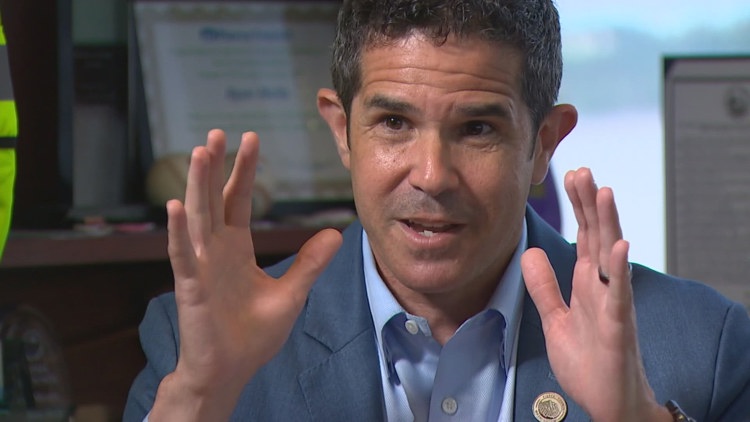Pierce County’s opioid crisis has reached alarming levels, with accidental overdoses surpassing car crashes as the leading cause of accidental death. Last year alone, 423 people died of overdoses, a roughly 40% increase from the year before.
In response, Pierce County Executive Ryan Mello is directing funds from Washington’s recent opioid settlements to extend the county’s only detox program — increasing the maximum stay from five to 10 days.
“This opioid crisis doesn’t know any barriers. It doesn’t discriminate,” Mello said in an interview with KING 5. “If folks get just a little bit more time in detox, closer to 10 days, the evidence tells us that it sticks.”
Many detox programs are limited by insurance policies that only cover five nights of treatment — an insufficient window, experts say, especially in an era dominated by the synthetic opioid fentanyl, which the DEA says is 50 times more potent than heroin.
“We have this problem of insurance only paying for five nights of detox services,” Mello said.
The expanded detox window is intended to make the first or second visit more impactful and, ideally, the last.
“They definitely see the same folks, a lot of folks, over and over again,” said Mello. “Instead of having someone come in and out of detox, we’re trying to make that first or second experience in detox stick.”
Pierce County Human Services is awarding $1.3 million to the nonprofit Metropolitan Development Council, which runs the detox program and has been a longtime partner of the county.
“This expansion is more than just additional days in detox—it’s about giving people the time they actually need to begin recovery,” said Scott Schubert, director of the program. “By aligning services with what we know from research and lived experience, we can improve outcomes, reduce unnecessary hospitalizations, and help individuals take meaningful steps toward long-term recovery.”
Schubert’s team has been helping people in Pierce County through for more than three decades. Last year, they doubled their detox capacity to 32 beds, serving more than 2,000 residents.
Over the next decade, Pierce County is expected to receive about nine times as much funding from opioid settlements as it had on hand last year for services like detox.
Mello said the county is focused on making long-term investments that save lives.
More information on opioid settlement funding and the county’s behavioral health services can
be found here.







